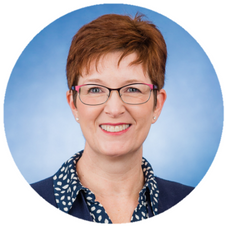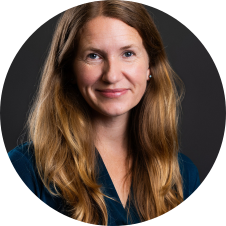Confidential Bridging Counseling (CBC) Services
When the need to meet with a counselor comes up, the last thing students need is to be placed on a 4-6 week waitlist - yet this is rather common. To assist you in getting started with your mental health needs, we created a free and confidential in-house counseling service (CBC - Confidential Bridging Counseling) to receive short-term counseling that can serve as a “bridge” of support. This could include processing a challenging experience or establishing care with mental health providers who you have plans to meet with. The counselor will make every effort to meet with students within a week of requesting an appointment. When needed, the CBC office strives to provide culturally-informed referrals to students who would like to continue wellbeing consultation outside of the CBC office.
Free / Confidential / Convenient for enrolled Medical Students
- FREE – there is no charge to you, insurance is not billed.
- CONFIDENTIAL – your attendance and what you discuss in the Confidential Bridging office is not shared with medical school leadership, faculty, staff or other students.
- CONVENIENT in-person location in the Mayo Building and behavioral telehealth service
[Note: CBC is not a crisis service. For students in need of immediate support, the University offers these types of Urgent (or Crisis) Walk-In services through Boynton Mental Health Clinic (BMHC) and Student Counseling Services (SCS) (see below). If you have immediate concerns for your own safety or that of another, call 911.]
CBC Diversity, Equity, and Inclusion Statement
The Confidential Bridging Counseling office is committed to excellence in providing services that are attuned and responsive to the needs of all medical students and in consideration of each person’s unique experience and values. When making referrals to other providers, we collaborate with students to understand their unique experience and culture to make personalized recommendations. We aspire to cultural and racial humility by examining and confronting our own behavior and contributions to the creation and perpetuation of institutionalized racism. We actively support diversity, equity and inclusion in the Medical School, health care system and community with respect to race, ethnicity, gender identity, gender expression, sexual orientation, disability, age, national origin, religious practice and socioeconomic status. All are welcome here.
Counselor Highlights

Maryanne Reilly-Spong, PhD, LP
About Maryanne: As a former pre-med who took much of the coursework of a first year medical student, Maryanne is attuned to the unique needs of medical trainees. Maryanne served as the first Postdoctoral Fellow in Counseling Psychology in the Medical School. Maryanne prefers to work with diverse communities in the area of behavior change to improve quality of life (anxiety, depression, sleep symptoms) and well-being. She has experience with communities impacted by chronic medical conditions, substance abuse and HIV, and in delivery of individual and group therapies. Maryanne is a published mindfulness researcher and has collaborated across the disciplines of medicine, nursing and pharmacy.
Email: maryanne@umn.edu

Elizabeth Teschner, PhD, LP
About Elizabeth ("Liz"): Liz is a dual-trained clinical and school psychologist experienced in working with students and educational systems. She strives to help students identify their priorities, release negative self-judgments, and align their actions with what they value most. Liz is also certified in Trauma-Focused Cognitive Behavioral Therapy to help people process traumatic experiences and move forward with their lives. She completed her doctorate at the University of Minnesota and then worked for 7 years as a lead clinical psychologist for Mokihana School-Based Behavioral Health in Kauai prior to returning home to Minnesota.
Email: eteschn@umn.edu
Privacy Considerations
The CBC service was intentionally created with procedural firewalls to protect student information. The psychology staff of the University of Minnesota Medical School (UMMS) Office of Learner Development is comprised of three licensed psychologists (LPs) who collaborate as a consultation team as needed, and together maintain the standards of confidentiality and regulations put forth by the MN Board of Psychology and to the Ethics Code of the American Psychological Association. The information you share in the CBC office is not shared with anyone else in the medical school or elsewhere, unless you specifically request that it be shared. Of course, confidentiality is limited under certain circumstances, to protect your safety or the safety of others (see the consent form for more information).
Scheduling a CBC Consultation
Students may schedule an appointment directly with a CBC counselor by using the following calendar links:
-
For Twin Cities students: z.umn.edu/bridging
-
For Duluth students: z.umn.edu/oldduluth
Scheduled consultation calendar entries are confidential and private, visible only to the CBC office and the student who selected the slot. The CBC calendar has been set up intentionally to work for most students’ availability; however, and if posted times do not fit your schedule, contact the counselor directly at maryanne@umn.edu or eteschn@umn.edu.
Statement on Promoting Mental Health in Medical Training
Wellbeing and academic performance are interrelated. With that in mind, the Medical School has a multi-layered approach to supporting your mental health, of which CBC service is one key resource. At the foundation of promoting wellbeing are medical school initiatives (supported by the Office of Learner Development) to promote a more effective learning environment such as reducing cognitive load in the curriculum and integrating clinical utility of foundational coursework, pass/fail assessments in pre-clerkship training, and the duty hours policy for students in clerkship training. These layers also include community resources such as Student Affairs initiatives (academic advising and career planning resources), many student-led support resources [e.g., Peer Mentors, academic coaching (tutors), K-Coop, the Wellbeing Committee and Peers Supporting Peers], and active initiatives with the many student groups that reflect the rich diversity of medical students. Lastly, we also support students in creating their own individualized health and wellness plans that are reflective of their unique needs and preferences.
Additional Mental Health Resources
- Get Help Now
- Student Mental Health - Twin Cities Campus
- Boynton Health - Mental Health Services
- Student Counseling Services
- Learn to Live (self-paced, online mental health resource), use code "UMN"
Crisis resource:
Walk-in crisis resources at BMHS and Student Counseling Services (see links above)
UofM Crisis Connection 612-301-4673
Text UMN to 61222
If you are someone else is in immediate threat of harm, dial 911